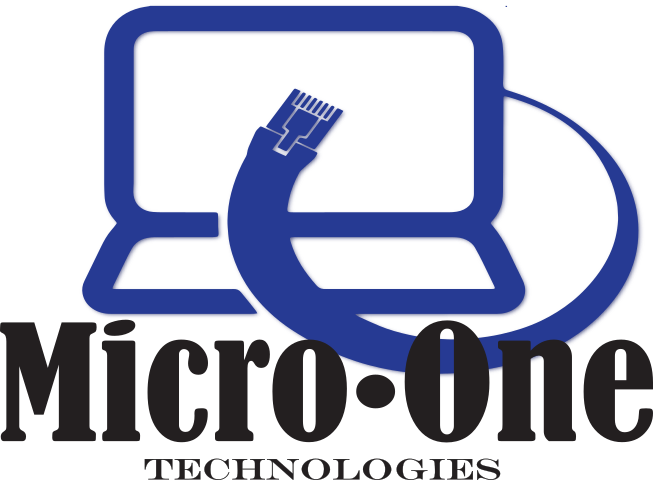Want To Protect the Integrity of Your Business?
Download the Ultimate Guide to Protect Your Business's Data

OUR SERVICES
What's the Main Focus in Your Business Right Now?
Managed IT Services
Streamline operations, minimize downtime, and ensure your technology works efficiently. With expert support and proactive maintenance, businesses can focus on growth without worrying about technical issues. Managed IT provides access to specialized knowledge and resources, reducing the need for an in-house IT team and cutting operational costs while boosting productivity.
Cybersecurity
Small businesses are increasingly targeted by cyberattacks, and a breach can result in significant financial and reputational damage. Cybersecurity is no longer optional—it’s a necessity for protecting sensitive data, ensuring compliance, and maintaining customer trust. Investing in strong cybersecurity measures helps small businesses defend against malware, data breaches, and other threats, keeping operations secure and business assets safe. Protecting against cyber risks is critical for the long-term success of any small business.
VOIP
Effective communication is critical for any small business, but traditional phone systems are expensive and inflexible. VoIP (Voice over Internet Protocol) provides a cost-effective, scalable solution that offers advanced features like remote access, call forwarding, and mobile integration. With VoIP, small businesses can easily manage communications, support remote work, and improve collaboration, all while saving money. As businesses grow, VoIP solutions adapt to meet their evolving needs without the high costs of traditional systems.


We believe that managing your IT should be handled by professionals!

Travis Ambrosy
Chief Information Officer
Managed IT services offer significant value for businesses of all sizes, from small enterprises to large corporations. By outsourcing IT tasks to a specialized provider, companies can improve efficiency and focus on their core business activities. Here are five key benefits of utilizing third-party managed IT services.
OUR FEATURE
Explore The Defining Attributes
Access to Experienced and Skilled IT Support
Many businesses, especially smaller ones, may not have the internal resources or expertise to manage complex IT functions. Hiring a Managed Service Provider (MSP) offers access to highly skilled IT professionals without the need to train or hire additional staff. This allows in-house teams to focus on their day-to-day responsibilities and pursue strategic projects without being bogged down by technical issues. An MSP’s specialized knowledge can also help businesses stay current with the latest technology trends and best practices, which would be difficult to achieve in-house.
Budget-Friendly Solutions
One of the primary reasons businesses turn to managed IT services is cost savings. Building and maintaining an internal IT team can be expensive, from recruiting and training to providing salaries and benefits. In contrast, managed IT services are typically offered at a fixed monthly fee, which provides predictability for budgeting. This predictable pricing allows companies to avoid unexpected costs and helps them plan their IT expenses more efficiently. Even large corporations can find that outsourcing IT tasks to an MSP is more cost-effective than handling everything in-house.
Budget-Friendly Solutions
One of the primary reasons businesses turn to managed IT services is cost savings. Building and maintaining an internal IT team can be expensive, from recruiting and training to providing salaries and benefits. In contrast, managed IT services are typically offered at a fixed monthly fee, which provides predictability for budgeting. This predictable pricing allows companies to avoid unexpected costs and helps them plan their IT expenses more efficiently. Even large corporations can find that outsourcing IT tasks to an MSP is more cost-effective than handling everything in-house.
Reliable IT Operations
Another major benefit of managed IT services is constant reliability. With an MSP, companies no longer need to worry about system outages, downtime, or unpredictable technical failures. Managed services typically come with a Service Level Agreement (SLA) that guarantees a certain level of performance and availability. Unlike internal IT teams that often have to juggle multiple responsibilities, an MSP can focus solely on maintaining and optimizing IT infrastructure. This results in more reliable and uninterrupted service, giving businesses peace of mind and confidence that their IT systems will be available when needed.
Flexible Support for Business Growth
As businesses grow, their IT needs evolve. Managed IT services provide the scalability needed to support this growth without requiring significant investments in new hardware or staff. Whether a company is expanding its operations, entering new markets, or adopting new technologies, an MSP can adjust its services to accommodate these changes. This flexibility allows businesses to focus on growth without worrying about whether their IT infrastructure can keep up. Managed IT services are designed to evolve alongside the company, ensuring that businesses can pursue new opportunities without facing IT constraints.
Flexible Support for Business Growth
As businesses grow, their IT needs evolve. Managed IT services provide the scalability needed to support this growth without requiring significant investments in new hardware or staff. Whether a company is expanding its operations, entering new markets, or adopting new technologies, an MSP can adjust its services to accommodate these changes. This flexibility allows businesses to focus on growth without worrying about whether their IT infrastructure can keep up. Managed IT services are designed to evolve alongside the company, ensuring that businesses can pursue new opportunities without facing IT constraints.
Eliminating Knowledge Silos
Knowledge silos occur when key information or skills are concentrated in specific individuals or departments, creating barriers to collaboration and efficiency. Managed IT services help to eliminate knowledge silos by providing a team of experts who share their knowledge and insights across the organization. This promotes better communication and collaboration within the company, as teams can rely on the MSP to provide consistent support and guidance. By removing these silos, businesses can foster a more connected and productive work environment, where IT knowledge and skills are accessible to all employees.
OUR FEATURE
Explore The Defining Attributes
Design Your Website
Streamline operations, minimize downtime, and ensure your technology works efficiently. With expert support and proactive maintenance, businesses can focus on growth without worrying about technical issues. Managed IT provides access to specialized knowledge and resources, reducing the need for an in-house IT team and cutting operational costs while boosting productivity.
Cybersecurity
Small businesses are increasingly targeted by cyberattacks, and a breach can result in significant financial and reputational damage. Cybersecurity is no longer optional—it’s a necessity for protecting sensitive data, ensuring compliance, and maintaining customer trust. Investing in strong cybersecurity measures helps small businesses defend against malware, data breaches, and other threats, keeping operations secure and business assets safe. Protecting against cyber risks is critical for the long-term success of any small business.
Cybersecurity
Small businesses are increasingly targeted by cyberattacks, and a breach can result in significant financial and reputational damage. Cybersecurity is no longer optional—it’s a necessity for protecting sensitive data, ensuring compliance, and maintaining customer trust. Investing in strong cybersecurity measures helps small businesses defend against malware, data breaches, and other threats, keeping operations secure and business assets safe. Protecting against cyber risks is critical for the long-term success of any small business.
VOIP
Effective communication is critical for any small business, but traditional phone systems are expensive and inflexible. VoIP (Voice over Internet Protocol) provides a cost-effective, scalable solution that offers advanced features like remote access, call forwarding, and mobile integration. With VoIP, small businesses can easily manage communications, support remote work, and improve collaboration, all while saving money. As businesses grow, VoIP solutions adapt to meet their evolving needs without the high costs of traditional systems.
Flexible Support for Business Growth
As businesses grow, their IT needs evolve. Managed IT services provide the scalability needed to support this growth without requiring significant investments in new hardware or staff. Whether a company is expanding its operations, entering new markets, or adopting new technologies, an MSP can adjust its services to accommodate these changes. This flexibility allows businesses to focus on growth without worrying about whether their IT infrastructure can keep up. Managed IT services are designed to evolve alongside the company, ensuring that businesses can pursue new opportunities without facing IT constraints.
Copyright - All Rights Reserved








